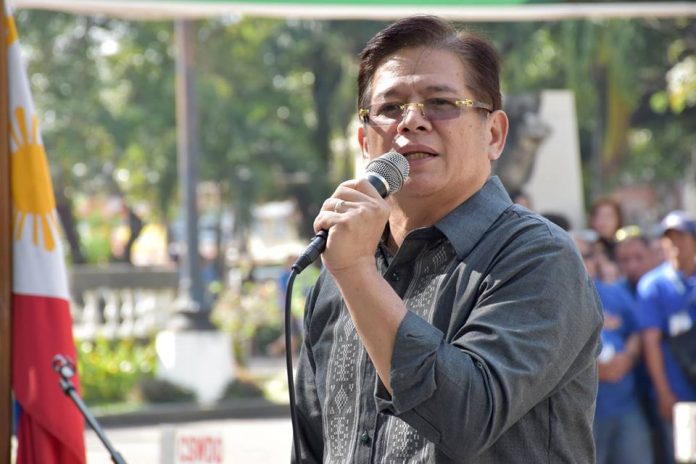
ILOILO City – Ukay-ukay vendors managed to sneak into Jaro Plaza days before the Jaro district fiesta on Feb. 2, according to Mayor Jose Espinosa III, citing complaints that reached his office. He would blacklist these vendors from all public markets as punishment for violating the ukay-ukay ban he imposed back in 2017.
Public plazas became off-limits to ukay-ukay beginning October 2017. Espinosa sad ukay-ukay violated Republic Act 4653 (An Act to Safeguard the Health of the People and Maintain the Dignity of the Nation by Declaring it a National Policy to Prohibit the Commercial Importation of Textile Articles Commonly known as Used Clothing and Rags).
Espinosa said he already called the attention of the manager of the Jaro Agro-Industrial and Charity Fair, Barangay Captain Jeryl Agilles of Balantang, Jaro, regarding the presence of ukay-ukay stalls at Jaro Plaza.
“They should not continue doing business there. I-blacklist pa naton kag indi naton pagpasudlon in all public markets,” said Espinosa.
In Executive Order No. 94-2017, Espinosa directed the city government’s Special Services Unit (SSU) and City Environment and Natural Resources Office (CENRO) to make sure no illegal or unauthorized structures or activities were built or carried out in public plazas and other places considered as properties of public dominion and/or for public uses.
The mayor appealed for public help. Report to the city government or police ukay-ukay vendors operating in public plazas, he said.
The police has the authority to close them and confiscate their merchandize, said Espinosa.
In 2002, the Macapagal-Arroyo administration banned the entry and sale of ukay-ukay items in the Philippine market; the government’s main objective was to protect local markets and industries.
The ban, however, failed to curb the industry that sprouted out of secondhand clothes and generated income for sellers, and saves more for the people who buy from them.
In September 2010, the Department of Trade and Industry (DTI) announced it was putting an end to the ukay-ukay industry.
Then Trade secretary Gregory Domingo described it as an illegal activity because DTI had never issued any license or permit to ukay-ukay sellers, and that the permits these vendors were using were issued by local government units.
Domingo later backtracked; still, he clarified that because ukay-ukay were selling primarily smuggled goods, the issue was more under the Bureau of Customs.
Big business groups, meanwhile, were against legalizing ukay-ukay. The Federation of Philippine Industries said domestic manufacturers were alarmed. It said ukay-ukay dissuaded investments in the textile and garments industry.
“Ukay-ukay” comes from the Filipino word “halukay” or the Hiligaynon word “ukay” which means “to dig” or “to scour.”
Ukay-ukay is literally digging from piles of clothes./PN



